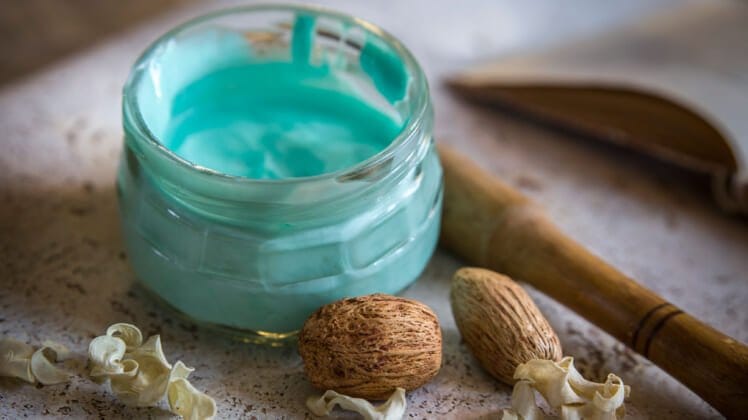Body Lotions vs. Body Creams: What’s The Difference?

When it comes to moisturizing your body, not all of the options are equal. Though we’re all probably guilty of using the terms “body lotion” and “body cream” interchangeably, they are, in fact, two different things. “The largest difference between a lotion and a cream is often the thickness and how emollient they are,” says Dr. Angela J. Lamb, MD, associate professor of dermatology at Mount Sinai in New York City.
Check Out: 5 Best Board Games For Couples
“Lotions tend to be thinner with more water content and don’t have moisturizers that are quite as thick as those in a cream,” Dr. Lamb explains. “Creams tend to be solid at room temperature and often use emollients that prevent water from evaporating off of the skin’s surface.” In other words, lotions are often lighter in feel and more readily absorbed by the skin, whereas creams have a thicker consistency and are more occlusive.
Body lotion vs. body cream: How to Choose?
Deciding between body lotion vs. body cream comes down to more than just textural preference. There are other things to consider, like skin type and conditions, too. If you suffer from excessively dry skin or irritation, then body creams will prove more beneficial. Creams are also better for treating conditions such as psoriasis, eczema, and cracked hands or feet. If your skin is oily, you sweat easily or suffer from body blemishes, a thinner lotion will probably be preferred.
Something else to keep in mind when choosing a body lotion vs. cream is the time of year. “One of the biggest differences would be in when you use them,” Dr. Lamb says. Typically, you’ll want to reach for a lotion in warmer weather when the elements aren’t as harsh and you want something lighter. In the winter, the cold can leave skin thirstier, so you’ll probably naturally gravitate toward a thicker, richer body cream, since they’ll better protect skin in harsh temps.
Application of body lotion vs. body cream:
Because of their thicker consistency, body creams take longer to rub in. You’ll find that body lotions are more spreadable and absorb faster upon application; however, you will need to use more of the product to achieve proper hydration allover. Otherwise, application is the same deal — right after a shower is best.
“There’s been a lot of research about when the best time is to apply moisturizers,” Dr. Lamb says. “Research tells us that applying them within three minutes of the skin getting moist helps trap in that layer of water on the skin surface and allows the moisturizers to penetrate better.”
Shopping for body lotions:
“One of the biggest things you want to look for in a lotion is something that is going to provide that moisture but without clogging the skin,” Dr. Lamb says. “Look for humectant ingredients like hyaluronic acid, which provides long-lasting moisture without being too thick and heavy.” She recommends Jergens Enriching Shea Butter Hand & Body Lotion ($10; target.com). “It’s one of my favorites because it also has shea butter in it, but is formulated so that it doesn’t leave your skin feeling too greasy or weighed down,” she says.
For lightweight hydration, the recently launched Moroccanoil Body Lotion ($28; sephora.com) is another great option. Formulated with their signature ingredient of argan oil, there’s also evening primrose oil and soothing aloe leaf extract for a truly luxurious feel. If you are looking for something that is also anti-aging, consider Image Skincare Vital C Hydrating Hand and Body Lotion ($39; amazon.com). It’s all about vitamin C, featuring four forms of the superstar antioxidant, along with other anti-aging ingredients, including hylaruonic acid.
Shopping for body creams:
For body cream, Dr. Lamb suggests looking for thicker, more emollient ingredients like shea butter, cocoa butter, plant oils, and petrolatum. One of the most recommended body creams by dermatologists is CeraVe’s Moisturizing Cream ($23; amazon.com), which features three essential ceramides to restore the skin barrier as well as hyaluronic acid to help retain skin’s natural moisture.
Avene Moisturizing Melt-in Balm ($30; dermstore.com) is another fan-favorite, thanks to its silky feel; the rich cream contains shea butter, camelina oil, safflower oil, as well as glycerin to hydrate and strengthen the skin. All about hydration, we also like Beauty Pie Super Healthy Skin Deluxe Body Moisture Crème ($17; beautypie.com), which blends cold-pressed hibiscus flower, meadowfoam oils and shea butter, plus essential oils of orange, tangerine, geranium and tonka bean for its bright scent.
The bottom line:
Ultimately, choosing a side in the body lotion vs. body cream showdown comes down to personal preference. If you prefer a heavy body cream in the summer or a light lotion in the winter, you do you. As long as your skin is hydrated and happy, that’s the right choice.
Explore More About:Uncategorized

